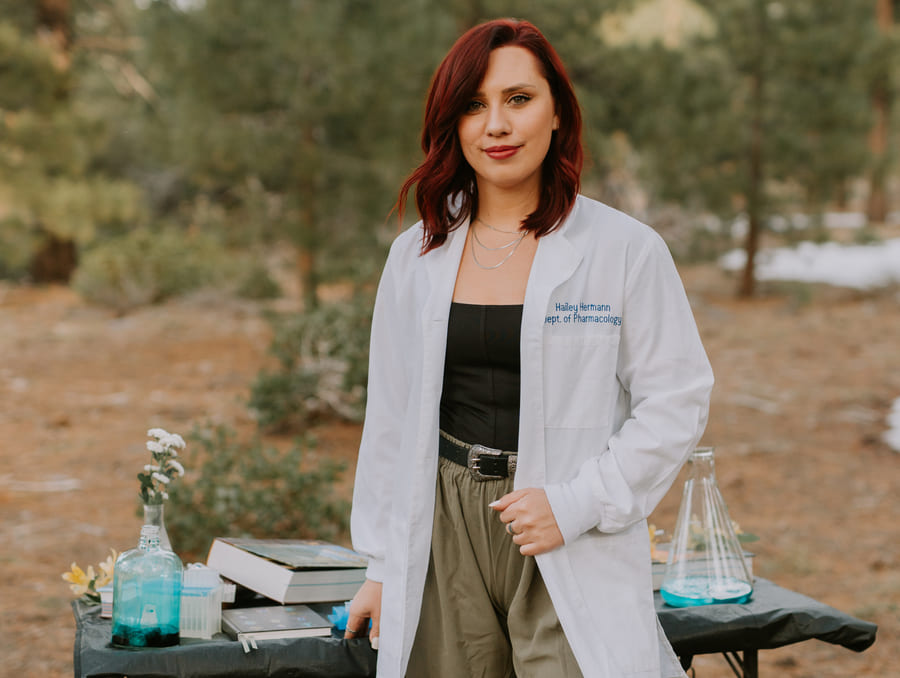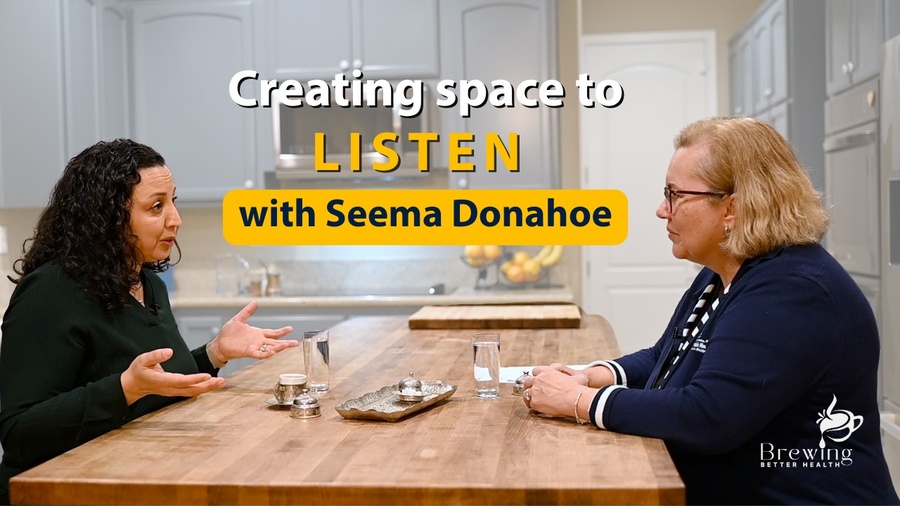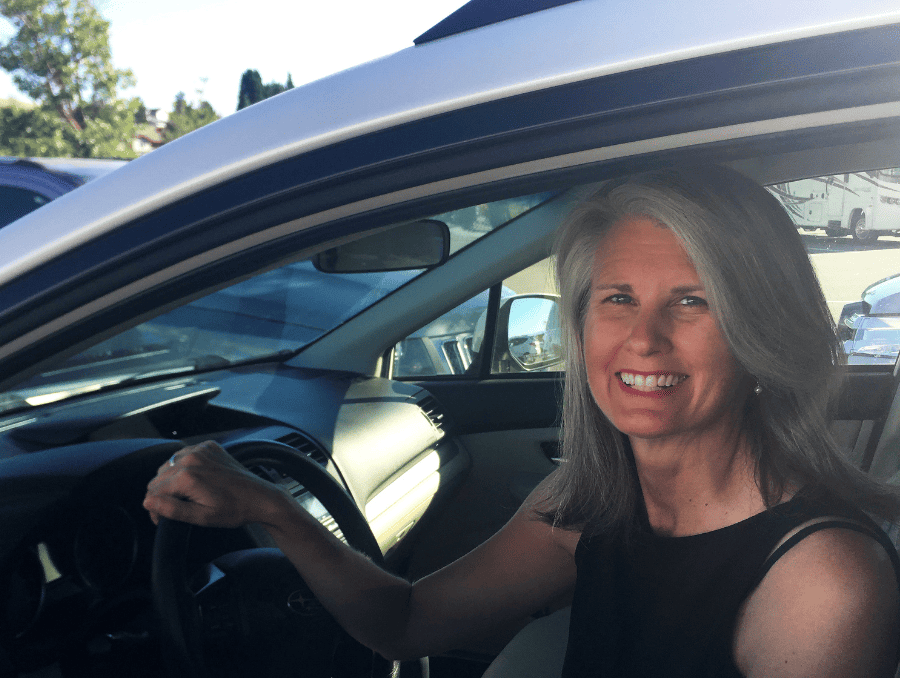Hailey Herman has always been a highly curious person. As a first-generation college student, she completed her bachelor’s degree and knew she wanted to do something to benefit others – she just wasn’t quite sure what that would look like. She joined the Burkin lab at the University of Nevada, Reno School of Medicine (UNR Med) where she participates in translational research for different types of muscular dystrophies. Immediately, she knew that contributing to this research was how she could make a difference, and she decided to pursue a Ph.D.
Reflecting on her time at UNR Med, Herman shares, “I love being a part of the UNR School of Medicine. It is a place filled with such knowledgeable faculty and staff. The academic environment is constantly growing and is very supportive of its students.” She plans to finish her dissertation by the end of the year, and then will stay on as a postdoc in Dr. Burkin’s lab. Still unsure if she will land in academia or industry, she plans on taking a similar approach to her research and “figuring it out little by little after graduation.”
Why did you decide to pursue research and what is your focus?
“I wanted to do something that would benefit others, so naturally I found research (or maybe research even found me). However, it wasn’t until I joined the Burkin lab that I knew for sure that research was for me, and I wanted to continue and pursue a Ph.D.
“In the Burkin lab, we focus on translational research for different types of muscular dystrophies. I work on LAMA2-CMD, a very rare congenital muscular dystrophy in which patients ultimately die within the first or second decade of life. There currently is no effective treatment or cure. It is caused by a mutation in the LAMA2 gene which causes complete or partial loss of a protein called laminin-211. Our lab has developed a protein replacement therapy and has previously shown it can slow disease progression.
“Currently, I am using a new technique called digital spatial profiling to study the proteome and transcriptome in individual human and mouse muscle fibers. The aim of this project is to observe major changes between human patients and control tissues. By looking at the molecular changes, we hope to discover novel biomarkers and demonstrate a potential therapeutic intervention for children affected with LAMA2-CMD.”
What specialty or area are you most passionate about pursuing, and what draws you to this field?
“The general sense that I can make a difference is what truly drives me to do research. Growing up I played a lot of sports and was very active. I was very interested in wellness, nutrition, and maintaining good health. Once I began studying muscular dystrophy I applied these interests in a different way. Many of these adolescent patients will never gain the ability to walk let alone play on the monkey bars at recess. In a way, it felt unfair that they wouldn’t get a similar experience in childhood that I was able to have.
“During the beginning half of my Ph.D., I went to my first conference in Nashville that focused on rare congenital muscular dystrophies. This conference is smaller than most and is different because parents and their children affected with muscular dystrophies attend the conference too. Watching the supportive community that the CureCMD organization fostered to support these underrepresented diseases was incredibly moving. Seeing these children fly past you in their motorized wheelchairs while playing tag with huge smiles on their faces in the hotel lobby really helped me understand my ‘why.’”
What is the biggest challenge you have faced in your UNR Med education and how did you overcome it?
“Imposter syndrome. One minute it is this thing you hear about and the next minute you are convincing yourself that you somehow managed to fool the application committee filled with seasoned professionals and that you shouldn’t be here. Grad school is hard, and it is supposed to be, and it is very different from your undergraduate years because not every answer can be found in a book. The weirdest part is I don’t know when I overcame it, but just at one point I felt confident in the scientist I was becoming and proud of my work.
“One thing that helped was that I read somewhere that we can’t think of gaining knowledge as linear because gaining knowledge is more similar to gaining compound interest. The more papers you read and techniques you learn will open multiple avenues to explore and gain insight into other areas. The next important thing that helped was giving myself grace and taking a break once in a while. You can’t achieve an accurate perspective if you are always ‘in it.’ Taking a step back and taking a breather can sometimes be the perfect conditions to ground you.”
Can you share a memorable experience during your training that has significantly impacted your journey?
“One memorable experience was trying to write my qualifying exam introduction and specific aims. The writing format is an R21 grant proposal, so it is a little different from the writing style I was used to at the time. I found myself procrastinating on getting started so I decided one morning I would go to Coffeebar and not leave until I finished the introduction portion. I had bad writer's block that day and ended up there for four hours and drank about five cold brews. I ended up giving myself caffeine-induced anxiety and wrote as fast as I could just so I could get out of there.
“The next day, I reread what I worked on, and it was terrible. I was off-tangent and kept switching between present and past tense randomly, so I pretty much scrapped the whole thing. I also couldn’t stomach coffee for about a week. Now I put a lot less pressure on when I write, and it seems to work out much better that way.”
What advice do you have for future students interested in pursuing research?
“As cliché as it sounds, don't be afraid to ask questions. Some of the most profound ideas I have had happened when I would ask about something that seemed obscure or not super applicable to my project. You never know where a question may take you. I also like keeping a non-formal journal that is for research. It helps me keep track of ideas I have come up with and how I feel while using a new protocol. Sometimes when I confuse myself, I can flip back in it and see what led up to that point.”
















